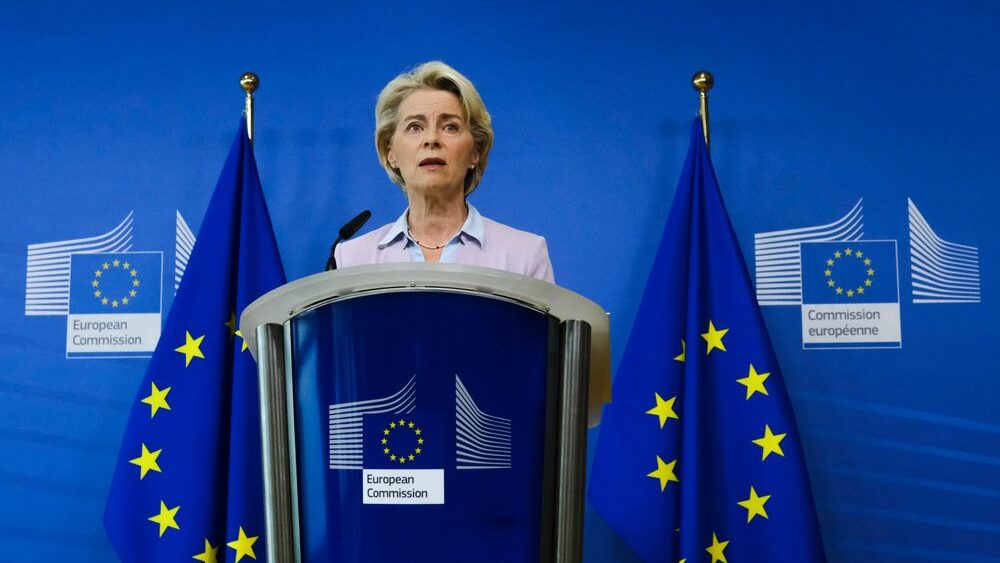
Ursula von der Leyen
Photo: Alexandros Michailidis / Shutterstock.com
The European Commission has been accused of weaponising a green policy on the world stage to implement aggressive trade policies, admitted a former Brussels top energy official in remarks attacking the work of Commission President Ursula von der Leyen on Wednesday, October 25th.
Günther Oettinger, a German CDU-aligned politician who served in various top Commission jobs, including as Commissioner for Energy between 2010 and 2014, made the comments at an economic summit hosted by the Baden-Württemberg regional representation in Brussels, accusing von der Leyen of reneging on her previous policies of cutting back on regulation.
Oettinger referenced a type of “neocolonialism made in Brussels,” describing how the EU was cynically trying to enforce its green standards across the world to its economic advantage, as he highlighted growing disunity among top Eurocrats regarding the rollout of the Green New Deal and diplomacy.
A flagship policy of the European Commission, the €528 billion-plus Green Deal envisions the complete reorientation of the EU economy away from fossil fuels with the rollout of strict greenhouse gas emission cuts, new renovation standards, and biodiversity regulations such as the Nature Restoration Law, which was strongly denounced by farming groups for its negative effect on agricultural production at a time of food price inflation.
The rollout of so-called “carbon tariffs” by the EU has already been criticised by India as an act of naked protectionism against their cement industry, with a potential case pending in the World Trade Organization.
Similarly, EU green policy was condemned by South American governments recently during ongoing attempts to revive the Mercosur trade deal. During the negotiations, the Brazilian President accused Brussels of instrumentalizing deforestation clauses to its advantage.
As Brussels’ relations with the Global South deteriorate, the EU is increasingly tapping into green subsidies as a way to curry favour with foreign governments, as recent deals with Kenya and Tunisia demonstrate.
More generally, EU energy policy has been dragged through the mud since beginning of the war in Ukraine, as the bloc increases its geopolitical preparedness against future confrontations with China.
Oettinger’s remarks point to growing disunity within the ranks of the centrist EPP ahead of next year’s European elections. The former official also lashed out at the very public spat between Council President Charles Michel and von der Leyen at a disastrous EU-U.S. summit in Washington this month, which culminated in both travelling in separate jets.
This is not the first time the 70-year-old German Christian Democrat has stirred the diplomatic pot. Oettinger got into hot water in 2016 for referring to Chinese people as “slit eyes,” and at the height of the eurozone crisis, he earned a public letter of condemnation from MEPs for suggesting that indebted nations should fly the EU flag at half mast.
